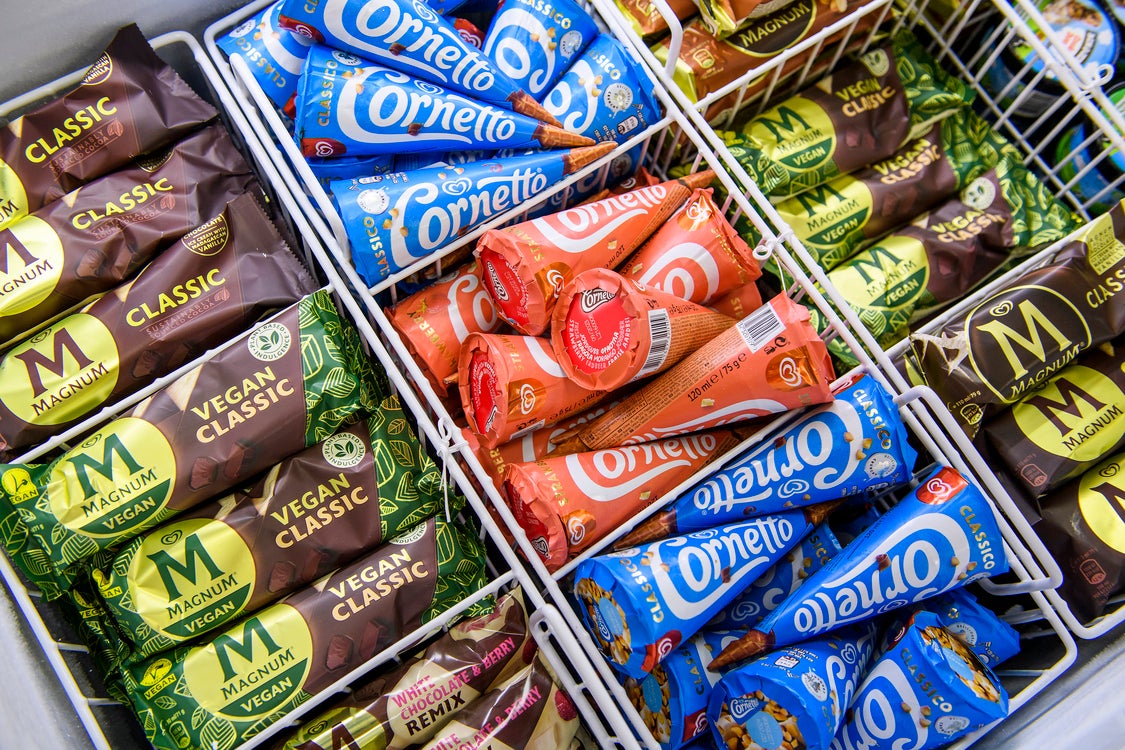
Unilever has refused to be drawn on speculation the FMCG giant has cemented a plan to spin-off ice cream rather than pursue a sale.
While a “demerger” of ice cream into a separate listed entity had previously been touted by CEO Hein Schumacher as the preferred or most likely option, he indicated in March that other avenues were on the table.
The comments set off market talk over a potential sale of ice cream and within days a report emerged suggesting Unilever had contacted private-equity firms to gauge interest. The Ben & Jerry’s and Magnum ice cream brands owner declined to comment at the time.
Unilever offered the same response today (21 November) after the UK’s Financial Times reported, quoting unnamed sources, that any potential plans to offload ice cream to an investor had been abandoned.
People familiar with the process told the FT that ‘the size and complexity of a potential deal was a major obstacle’, along with factors such as performance, logistics and the recent stance by Ben & Jerry’s founders over the conflict in Gaza.
The publication also cited an executive at one unidentified private-equity firm, which reportedly had expressed an interest in a deal for ice cream, as saying it was unclear how any potential buyer could operate the business “differently to the current management”.
Access the most comprehensive Company Profiles
on the market, powered by GlobalData. Save hours of research. Gain competitive edge.

Company Profile – free
sample
Your download email will arrive shortly
We are confident about the
unique
quality of our Company Profiles. However, we want you to make the most
beneficial
decision for your business, so we offer a free sample that you can download by
submitting the below form
By GlobalData
Unilever referred Just Food to previous comments from Schumacher on his plans for ice cream when asked to confirm the substance of the FT report.
“We’re not commenting,” a spokesperson said.
Discussing third-quarter results in October, Unilever’s CFO Fernando Fernandez said the “separation” of ice cream was “on track” ahead of the end of 2025 split date.
“We are progressing with the legal entity set up, the stand-alone operating model and the carve-out of financials,” Unilever said.
Further speculation over whether the demerger of ice cream is the most likely option surfaced last week, when Unilever confirmed it was cutting fewer jobs in Europe than initially flagged back in March.
Some of the at-risk positions will be transferred to ice cream, Unilever said.
“When we announced the programme, we were determined to mitigate the impact of these changes on our people and so we are pleased that we have achieved this in Europe through a combination of role transfers to our ice-cream business, a hiring freeze and natural attrition,” a spokesperson said.
That same week, a report emerged that Ben & Jerry’s was suing the parent company amid suggestions Unilever had attempted to silence the ice-cream group’s attempts to support Palestinian refugees in the Gaza conflict.
In its lawsuit, the ice-cream maker reportedly claimed Unilever had breached the terms of the two parties’ 2022 settlement, which requires the Knorr brand owner to “respect and acknowledge the Ben & Jerry’s independent board’s primary responsibility over Ben & Jerry’s social mission”.
Court documents cited by news agency Reuters suggested: “Ben & Jerry’s has on four occasions attempted to publicly speak out in support of peace and human rights. Unilever has silenced each of these efforts.”
It was the latest spat between Unilever and Ben & Jerry’s stretching back to 2021.
In July 2022, the Cookie Dough ice-cream maker, acquired by Unilever in 2000, filed a claim against its owner over its decision to sell Ben & Jerry’s operations in Israel.
The case, filed in the US District Court in Manhattan, alleged the deal with Avi Zinger, owner of American Quality Products Ltd. (AQP), violated the original merger and shareholder agreement between Unilever and Ben & Jerry’s.
In 2021, the Vermont-based ice-cream business announced it would stop selling its products in East Jerusalem and the West Bank, which are claimed by Palestine but have been occupied by Israel since 1967.
At the time, the group said it thought selling its products in these areas to be “inconsistent with our values for Ben & Jerry’s ice cream”. The move brought about a backlash from the then Israeli Prime Minister Naftali Bennett.

